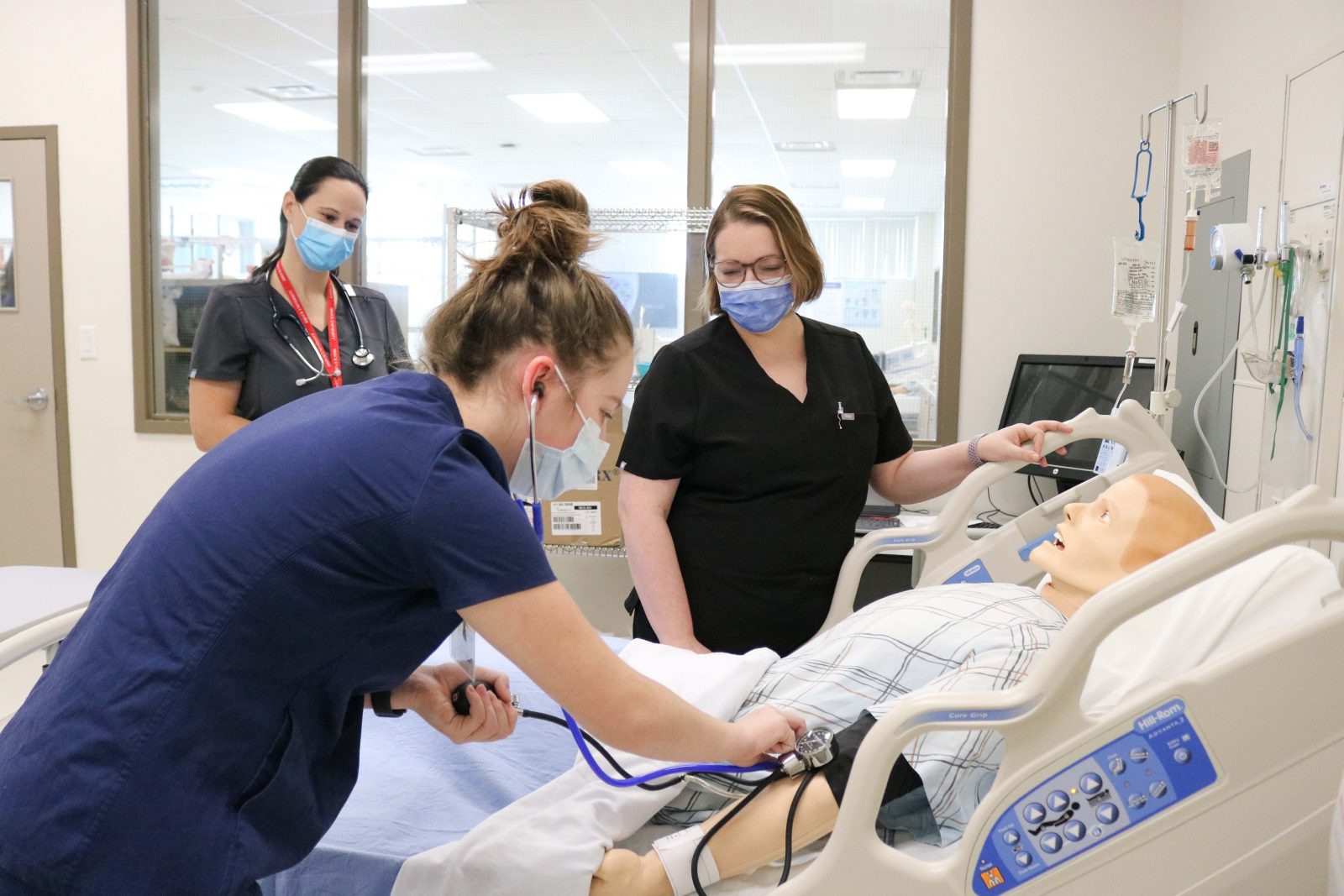
What Are Accelerated Nursing Programs?
Accelerated nursing programs are designed for individuals who already hold a bachelor’s degree in a non-nursing field and wish to earn a Bachelor of Science in Nursing (BSN) or qualify as a registered nurse in less time than traditional programs. These programs typically take 12 to 18 months to complete.
Key Features:
- Intensive curriculum
- Condensed timeline (often 1 year)
- Clinical placements
- Designed for second-degree students
- Eligibility for RN licensure upon graduation
Benefits of a 1 Year Accelerated Nursing Program
- Speed: Complete your education and enter the workforce faster.
- Career Shift: Ideal for career changers or professionals seeking a healthcare career.
- High Demand: Nurses are in high demand across Canada, making employment prospects strong.
- Competitive Salaries: Average RN salaries in Canada range from CAD $60,000 to $90,000 annually.
Online Accelerated Nursing Programs
With the rise of digital education, Online Accelerated Nursing Programs offer flexibility for students across Canada. These programs may include virtual lectures, interactive simulations, and local clinical placements.
Top Benefits:
- Learn from home with minimal disruption
- Maintain part-time employment
- Accessible for students in remote or underserved areas
Regional Accelerated Nursing Programs for Canadians
Though based in the U.S., many Canadian students pursue fast-track programs in nearby states. Here are key examples:
1. Wisconsin Accelerated Nursing Programs
- Multiple institutions offer 12- to 16-month BSN options
- Strong clinical network and support services
- Easy access for students from Ontario and Manitoba
2. Accelerated Nursing Programs MN (Minnesota)
- Recognized for academic excellence and proximity to Canadian borders
- Clinical training in urban and rural settings
- Popular among students from Manitoba and Saskatchewan
3. Accelerated Nursing Programs DFW (Dallas-Fort Worth)
- Texas-based programs with strong job placement networks
- Attracts Canadian students seeking warm climates and diverse experience
- May offer financial incentives for international students
4. Accelerated Nursing Programs Cincinnati
- Located in Ohio, a central hub for healthcare education
- Well-developed infrastructure for clinical rotations
- Accessible by air and land travel from major Canadian cities
Note: Many U.S. institutions have pathways for international or Canadian applicants. Always confirm NCLEX eligibility and licensing reciprocity in your province.
Admission Requirements
- Bachelor’s degree in a non-nursing field
- Minimum GPA (often 3.0 or higher)
- Completion of science prerequisites (e.g., Anatomy, Physiology, Microbiology)
- English proficiency (for non-native speakers)
- Letters of recommendation, resume, and personal statement
Licensing and Certification in Canada
Upon completing an accelerated program, you must pass the NCLEX-RN exam to qualify as a registered nurse in Canada. Many U.S.-based programs prepare students for this exam, which is recognized by Canadian provinces.
Canadian Registration Process:
- Apply to the National Nursing Assessment Service (NNAS)
- Submit educational and identification documents
- Take the NCLEX-RN
- Apply to your provincial regulatory body (e.g., CNO, BCCNM)
Scholarships and Financial Aid
While these programs can be intensive and costly, there are various financial aid options:
- Government student loans (federal and provincial)
- Scholarships for healthcare professionals
- University-specific grants
- Employer-sponsored tuition reimbursement (for working professionals)
Career Prospects After Graduation
Canadian graduates of accelerated nursing programs enjoy strong employment outcomes. Common roles include:
- Hospital RN
- Community Health Nurse
- Public Health Nurse
- Clinical Research Coordinator
- Home Care Nurse
Many provinces also offer incentives to work in rural or underserved areas, such as relocation bonuses or student loan forgiveness.
How to Choose the Right Accelerated Program
When evaluating programs, consider the following:
- Program length and structure
- Cost and financial aid availability
- Clinical placement partnerships
- Support services (e.g., tutoring, career counselling)
- NCLEX pass rates and graduate employment outcomes
Final Thoughts
If you’re eager to make a difference in the healthcare system and want a fast, effective path to nursing, an accelerated nursing program is an excellent choice. Whether you prefer studying in Canada or exploring top-tier programs in the U.S., there are multiple pathways to achieve your nursing credentials quickly.
Start by researching schools that offer 1 Year Accelerated Nursing Programs, including options like Wisconsin Accelerated Nursing Programs, Accelerated Nursing Programs MN, Accelerated Nursing Programs DFW, and Accelerated Nursing Programs Cincinnati. With Online Accelerated Nursing Programs, even remote learners can access top-quality education. Your journey into nursing begins with the right information, and the opportunity to join a life-saving profession is just one application away.
